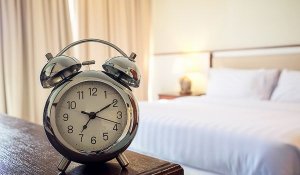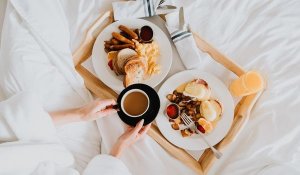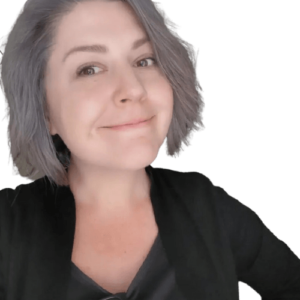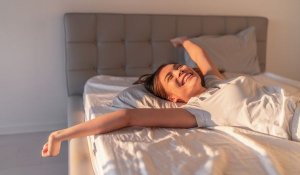
With all the excitement of getting off to holiday destinations, getting a good night’s sleep is often the last thing travelers consider before a trip. However, without proper rest, enjoying a vacation becomes much harder. Jet lag can set in quickly, leading to a lack of energy to follow through with carefully planned activities. You might be left counting down the hours until reaching the comfort of a hotel bed, and sometimes, those beds aren’t even comfy!
What is a good amount of sleep?
An optimal sleep duration is between six and eight uninterrupted hours each night, though this varies from person to person. During deep delta sleep, the body reaches its most rested state. Deep delta sleep is the deepest stage of sleep. It plays a major role in physical restoration, memory consolidation, and overall brain recovery. This stage is characterized by delta brain waves, which are the slowest and most synchronized brain waves. Deep sleep typically makes up about 13-23% of total sleep in healthy adults, though this can vary.
How do I regulate sleep when traveling? 
Traveling by airplane, especially to a different time zone, is often a major disruptor to regular sleep patterns, even when the trip is for leisure. Everyone has an ideal time for sleep, usually between 11 pm and 7 am, known as the circadian window. Traveling, especially across two or more time zones, can significantly disrupt this natural rhythm. For those preparing to travel, there are several strategies to help reduce sleep disturbances that are not due to sleep disorders.
Adjust sleep times before the trip
To prepare for travel, it is recommended to gradually adjust bedtime starting three days before departure. On the first night, bedtime can be shifted an hour earlier or later, depending on the destination’s time zone. On the second night, another hour is added, followed by a third adjustment on the third night.
Adjust to the local time zone ASAP
Upon arrival, adjusting to the local schedule is highly recommended. For daytime landings, it is best to stay awake and align with the local activity. Sleeping as much as possible on the plane can help with this. For nighttime arrivals, it is advised to remain awake during the flight and rest after reaching the destination. If it is a short trip, say, two days or so, it is recommended to stick to a personal schedule rather than trying to adjust to a new time zone. Since the body often doesn’t have enough time to adapt before returning home, it can be more effective to request that any meetings or obligations align with peak waking hours in the traveler’s home time zone whenever possible.
Work with light exposure
For early morning flights heading east, wearing sunglasses upon landing can help reduce light exposure. The ideal time for maximum light exposure is in the late morning and early afternoon, as this helps align the body’s internal clock with the destination’s time zone. The aim is to adjust the internal clock to align more closely with the destination’s bedtime. For westward travel, which tends to be less disruptive, it is recommended to seek light exposure in the early evening. Spending time outside, such as eating outdoors or taking a walk, can help shift the body’s rhythm to a later schedule.
Get moving
Start the day with a warm shower followed by outdoor exercise to help the body wake up. Raising the body’s core temperature acts as a signal for the circadian rhythm to activate. Exercise earlier in the day is also recommended for everyday sleep hygiene, as working out later in the evening can make it harder to regulate sleep patterns.
Take a sleep supplement containing melatonin
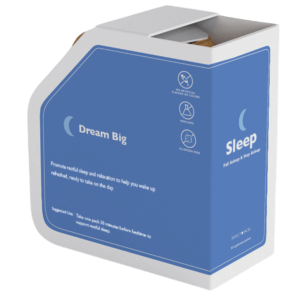
What food helps to regulate sleep when travelling?
Travel often leads to choosing foods high in sugar or carbohydrates, as maintaining a strict healthy diet is rarely a priority during trips. However, just because something is eaten on a vacation doesn’t mean it won’t have the same effect on the body, and moderation is recommended to avoid feelings of fatigue and low energy.
- Certain foods can significantly impact sleep quality. These include carbohydrates such as sugar, starch, and alcohol, as well as dense animal proteins that are harder to digest. Limiting foods like pasta, rice, sugary snacks, processed items, fruit juices, and soft drinks and focusing on a diet rich in quality proteins and plants is ideal, particularly while traveling.
- At the breakfast buffet, start the day right with some eggs. Eggs are rich in the amino acid tryptophan. This protein component is essential for producing melatonin, a hormone that encourages sleepiness. For those deficient in melatonin, increasing foods rich in nutrients that promote melatonin production at any time of day, not just at night, can help to regulate sleep cycles.
- It is generally advised to finish eating by 8 pm, so the body has time to digest everything properly and doesn’t keep you awake at night.
- An easy thing to find in most places or to bring along on a trip are chamomile teabags. Chamomile tea contains a compound called apigenin, which promotes relaxation and calmness.
- Coffee drinkers may want to limit their intake, especially during holidays, as excessive coffee consumption has been associated with lower sleep quality. Caffeine, however, is not limited to coffee. Black and green tea, chocolate, cola, and other soft drinks may also be significant sources of caffeine.
- Sugar has been associated with disrupted sleep, including more frequent awakenings during the night. Many restaurant meals consumed during the holidays contain hidden sugars in dressings and sauces. Request these condiments on the side to better manage sugar intake.
- Granola, muesli bars, and health bars also often contain high amounts of sugar. Even when the sugar comes from natural sources like dates, honey, or agave, the body processes it the same way as refined sugar found in chocolates and cakes. As a result, consuming these can negatively impact sleep and make it harder to wake up feeling refreshed.
- Stay hydrated when traveling, as being dehydrated may increase the effects of jet lag.
FAQs
What is the 10-3-2-1-0 rule to regulate sleep?
The 10-3-2-1-0 routine is a simple way to regulate sleep, to help people get better rest by timing certain activities before bedtime. Here’s how it works:
- Avoid caffeine at least 10 hours before going to bed.
- Stop eating or drinking alcohol 3 hours before bedtime.
- Finish work 2 hours before bed.
- Stay off screens, like phones and computers, 1 hour before sleep.
- In the morning, don’t hit the snooze button at all.
What is travel insomnia?
Travel insomnia refers to trouble sleeping while traveling, even though it’s not a formal medical term. It can be triggered by factors like stress, anxiety, unfamiliar environments, or jet lag.
Why am I so lazy after vacation?
Returning to a regular routine after time away can take a toll. The challenges of travel, such as lengthy flights, layovers, adjusting to new time zones, and managing the details of planning and exploring unfamiliar destinations, often leave individuals feeling more worn out than when they started their trip.

